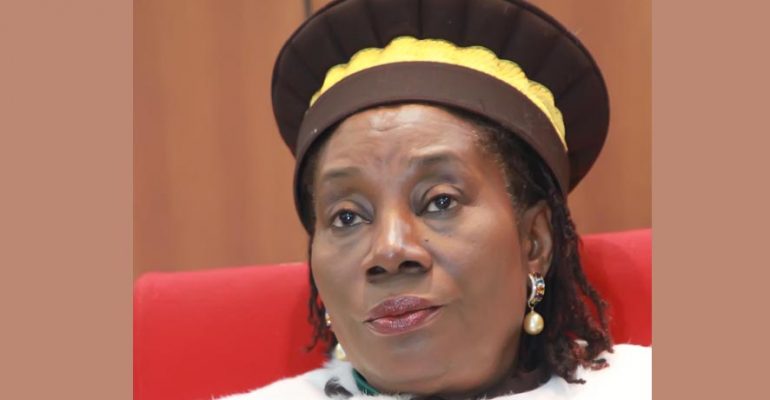COURT STRIKES OUT CASE BROUGHT BY NGOS ALLEGING CORRUPTION IN NIGERIA’S NIGER-DELTA DEVELOPMENT COMMISSION
The ECOWAS Court on 9th June 2023 struck out a case filed by two non-governmental organisations (NGOs) alleging the violations of the rights of Nigerians in the Niger Delta resulting from corrupt practices in an agency set up by the Nigerian government in 2000 to manage and administer ecological funds obtained from the exploration of oil in the country’s oil rich Niger Delta.
Justice Dupe Atoki, judge rapporteur who delivered the judgment, declared the application inadmissible following the pleas in-law – paragraph c of Article 33 (1) of the Rules of the Court and Article 10(c) of the 2005 Supplementary Protocol on the Court – relied upon by the NGOs who brought the case against the Federal Republic of Nigeria, an ECOWAS Member State.
The judgment read in part: “The pleas in law cited by any party in an Application before the Court is the specific law upon which the Court is called upon to adjudicate on the matter. These laws are the authority upon which the Court determines issues raised in any Application.”
Article 33(1) (c) states ‘The subject matter of the proceedings and a summary of the pleas in law on which the application is based’ while Article 10(c) regarding access to the court provides that access to the Court is available to ‘individuals and corporate bodies in proceedings for the determination of an act or inaction of a Community official which violates the rights of the individuals or corporate bodies.’
Consequently, although the Court held it had jurisdiction to hear the matter/case which was premised on human rights violations, and that the NGOs had the legal capacity to bring the matter before the Court, the matter/case was declared inadmissible on the grounds that Nigeria, being a Member State does not qualify as a Community official based on the provisions of Article 10(c ) relied upon by the applicants in their initiating application. The case was subsequently struck out.
The two NGOs – Incorporated Trustees of Socio-Economic Rights and Accountability Project (SERAP) and the Social Development Integrated Centre (SOCIAL ACTION), both registered in Nigeria to promote human rights and social justice respectively, filed the case in suit number ECW/CCJ/APP/46/22 in which they told the Court that the Nigerian government established the Niger Delta Development Commission (NDDC) in 2000 to manage and administer ecological funds obtained from exploration of oil minerals in the country’s Niger-Delta region.
The applicants further said that following reports of entrenched corruption in the Commission, the President through the Federal Executive Council (FEC), constituted a forensic audit team to undertake the forensic audit of over 13,000 contracts valued at over six (6) trillion naira awarded between 2001 and 2019.
The lawyers representing the NGOs – Kolawole Oluwadare, Adelanke Aremu, Valentine Adegoke and Atinuke Adejuyigbe added that the request for audit by the people of the region arose from the huge gaps between allocated resources in comparison with infrastructural, human and economic development in the region.
Furthermore, they said that on receipt of the report, the Attorney-General of Nigeria stated the NDDC operated 362 bank accounts leading to difficulty in properly reconciling them and that the President would lawfully tackle the deficiencies outlined in the report and recover misappropriated funds.
The lawyers told the court that the forensic audit report is yet to be published or made public and consequently, the first Applicant SERAP wrote a letter dated September 25, 2021 to the Nigerian President requesting a presidential directive addressed to the Attorney-General and Minister of Justice to publish the names of indicted individuals in the alleged misappropriation of funds, prosecute those indicted and recover all misappropriated funds.
They added that the President and the Attorney-General have failed or refused or neglected to act as required under the law, and that despite the oil wealth of Nigeria, many Nigerians in the region have benefitted very little due to huge corruption and impunity of the perpetrators in the NDDC.
Furthermore, the misappropriation of funds has impoverished the people, denied them access to basic public goods and services, increased unemployment and crime rate in the region and forced many to live in inhuman and degrading conditions in violation of their fundamental rights as guaranteed in the African Charter on Human and Peoples’ Rights and the International Covenant on Economic, Social and Cultural Rights.
They also said that there were about 13,000 abandoned projects in the region that continue to violate the people’s rights to basic amenities of life including standard education, healthcare, clean water, adequate housing, power supply and other infrastructure.
Relying on various Articles in the African Charter on Human and Peoples’ Rights, the International Covenant on Economic, Social and Cultural Rights, and Declaration of Right to Development, Universal Declaration of Human Rights, they asked the Court to direct and compel the Nigerian government to prosecute those indicted by the NDDC forensic audit report, publish their names and recover embezzled funds for redistribution to improve education, health, social services, housing and other conditions of living of Nigerians (in that region.)
They asked the Court to declare that the failure of the Nigerian government to prosecute persons indicted for the embezzlement of the funds, publication of their names and recovery of the funds for the development of the region amounted to the violation of the fundamental rights of the people in that region.
In addition, they asked the Court to direct the government and its agents to respect, protect, promote and fulfil the human rights of Nigerians in the region and elsewhere.
They also urged the Court to compel the government to adopt and ensure effective measures for transparency and accountability in NDDC operations/system to curb future corrupt practices.
The Court noted that the Respondent – Federal Republic of Nigeria did not file any defence to the Application.
On the panel were Justices Edward Amoako Asante (presiding), Dupe Atoki (judge rapporteur) and Sengu Mohamed Koroma (member).

